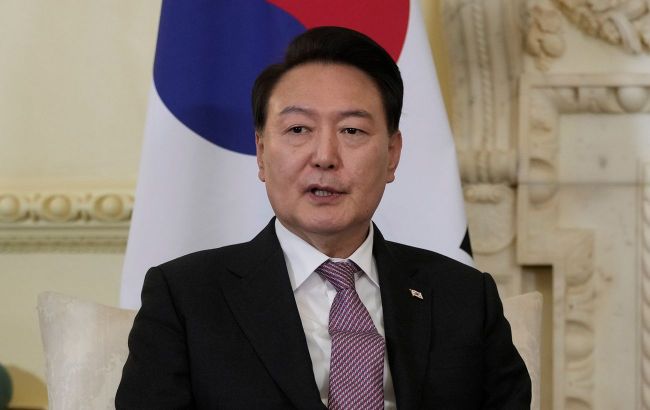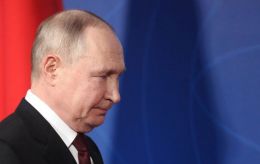South Korea's arrested president did not appear for second interrogation
 The President of South Korea, Yoon Suk Yeol (photo: Getty Images)
The President of South Korea, Yoon Suk Yeol (photo: Getty Images)
The arrested President of South Korea, Yoon Suk Yeol, refused to participate in a second interrogation by investigators. This complicates the ongoing investigation against him on charges of sedition for attempting to introduce martial law in the country, reports Reuters.
An official from the Corruption Investigation Office (CIO), which is conducting the criminal probe, stated that President Yoon Suk Yeol had continued to refuse to speak with investigators, who had prepared a questionnaire exceeding 200 pages.
The interrogation of the president was scheduled to resume at 2:00 p.m. (05:00 GMT) on Thursday, January 16, but the defense team announced that he would not attend.
One of the president's lawyers, Yoon Kab-keun, cited health issues as the reason for the refusal to participate in the interrogation and added that further questioning would be pointless, without providing further details.
Yoon's lawyers consider the arrest warrant to be illegal. According to their version, it was issued by a court with improper jurisdiction, and the group formed to investigate the case did not have a legitimate mandate to do so.
On Thursday, the president's legal team filed a complaint with the prosecutor's office against the arrest warrant, targeting the head of the CIO and several police officers involved.
Yoon's lawyers deny that he was the organizer of the uprising - a crime in South Korea punishable by life imprisonment or even the formal death penalty.
The last execution in South Korea took place in 1997 for a murder conviction.
Case of the coup attempt against the President of South Korea
On December 3, the President of the Republic of Korea, Yoon Suk Yeol, declared martial law in the country, citing the need to limit opposition activities and impose media censorship.
However, the government and parliament forced the president to revoke the special regime. Yoon apologized for making such a decision, and the martial law lasted approximately six hours.
On December 14, the National Assembly of the Republic of Korea announced an impeachment against President Yoon and suspended him from his duties.
On Wednesday, January 15, law enforcement officers managed to enter the president's estate on their second attempt and arrested him.
Yoon was interrogated and placed in the Seoul detention center.
The authorities have 48 hours to question the president, after which they must either release him or obtain a detention warrant for up to 20 days. However, the countdown was paused as Yoon's lawyers appealed to the court to review the legality of the arrest.
The president's refusal to cooperate with the investigation came at a time when the Constitutional Court held a second hearing in the impeachment case to determine whether to permanently remove him or restore his presidential powers.

